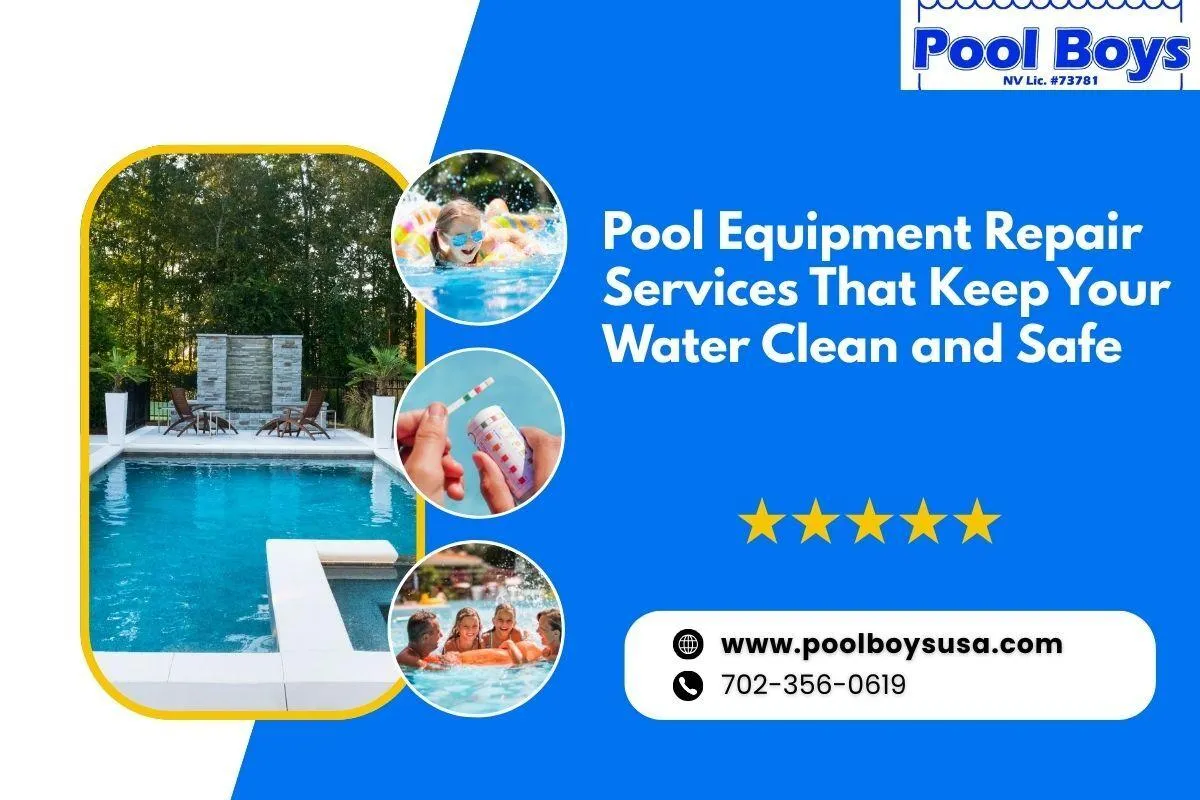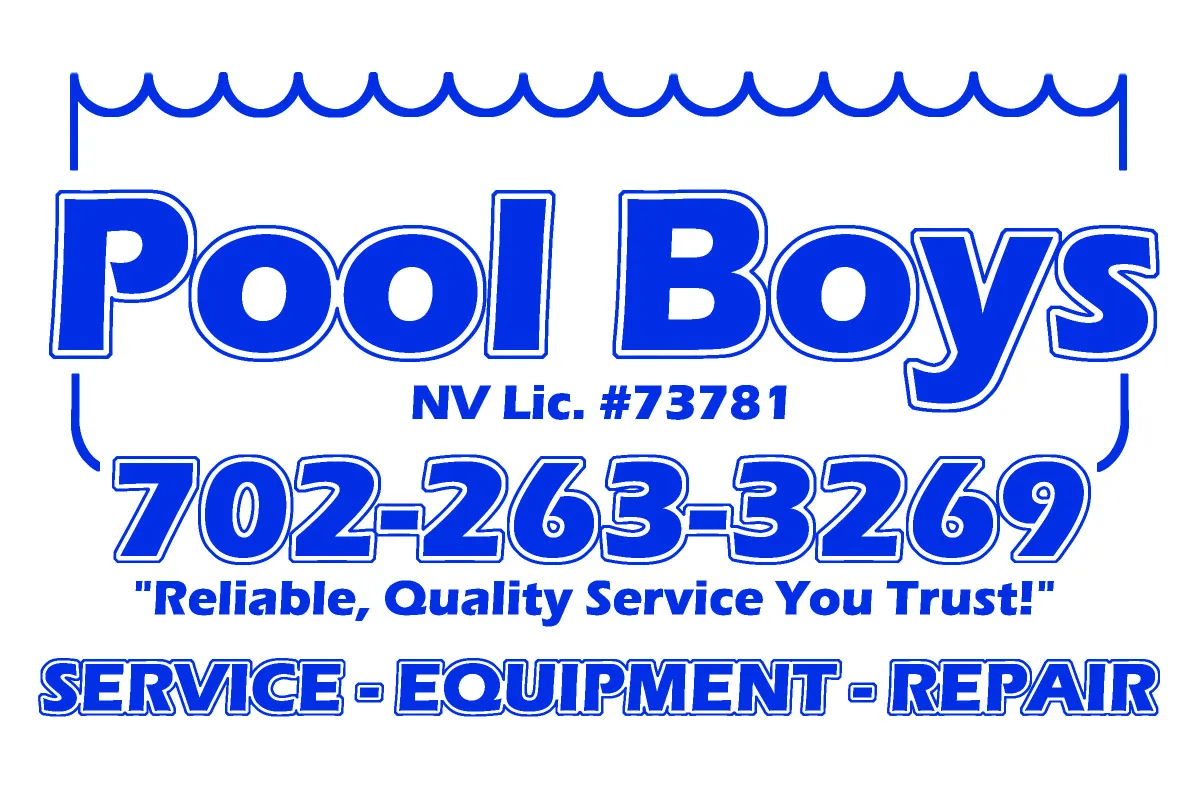Our Blogs
Maintaining a pristine pool requires regular attention to water chemistry, filtration systems, and surface cleanliness. Regularly testing and balancing your pool's pH, chlorine levels, alkalinity, and calcium hardness ensures safe and clear water. Cleaning skimmer baskets and filters prevents debris buildup and promotes efficient water circulation. Additionally, consistent skimming, vacuuming, and brushing of pool surfaces help prevent algae growth and keep your pool inviting.
Our Blogs
Maintaining a pristine pool requires regular attention to water chemistry, filtration systems, and surface cleanliness. Regularly testing and balancing your pool's pH, chlorine levels, alkalinity, and calcium hardness ensures safe and clear water. Cleaning skimmer baskets and filters prevents debris buildup and promotes efficient water circulation. Additionally, consistent skimming, vacuuming, and brushing of pool surfaces help prevent algae growth and keep your pool inviting.

Pool Equipment Repair Services That Keep Your Water Clean and Safe
Few moments feel more disappointing than stepping outside to swim and finding water that looks dull or equipment that no longer works. A pool should provide comfort and peace of mind, not stress or uncertainty. When pumps, filters, or heaters fail, water quality suffers, and safety can be compromised quickly.
Professional pool equipment repair services protect that sense of enjoyment by keeping water clear, balanced, and safe. Prompt attention prevents minor problems from becoming costly breakdowns, giving homeowners confidence that their pool remains ready whenever needed.
Families across Southern Nevada rely on Pool Boys for dependable service, rooted in honesty and expertise. With over two decades of local experience, this family-owned team delivers straightforward care that keeps every pool clean and inviting.
Why Your Pool Equipment Is the Heart of a Clean, Safe Pool
Pool equipment acts as the circulatory system of your backyard oasis. Water flows through pumps and filters much like blood flows through veins, carrying away impurities and keeping the environment balanced. When this system works correctly, swimmers enjoy clear water and peace of mind.
Breakdowns interrupt circulation and sanitation, which allows algae, bacteria, or cloudy water to develop. Small issues left unresolved can quickly escalate into unsafe conditions that make the pool unusable.
The Pump is for Circulation: It keeps water moving and distributes chemicals evenly.
The Filter is for cleaning: It removes dirt, debris, and microscopic contaminants.
The Heater is for Comfort: It maintains a comfortable water temperature.
Common Pool Equipment Problems Homeowners Face
Pool equipment often gives warning signs before failing, and learning to recognize them helps prevent costly damage and unsafe swimming conditions for families.
What Are the Signs of a Failing Pool Pump?
A failing pool pump creates problems with circulation, efficiency, and water clarity. Recognizing early symptoms ensures timely pool pump repair before small issues escalate into expensive breakdowns.
Early detection helps preserve equipment life and reduce repair costs.
Unusual Noises
Loud rattling or grinding often signals worn bearings, misaligned parts, or internal damage that requires immediate professional attention to avoid complete pump failure.Reduced Water Flow
Weak circulation prevents chemicals from distributing evenly, leaving debris and contaminants in the water that compromise pool health and swimmer safety significantly.Higher Energy Bills
Increased electricity usage often indicates a struggling pump motor that works harder than necessary, wasting energy while delivering poor circulation and unreliable water quality.
Why Is My Pool Equipment Making Noise?
Noisy equipment often signals underlying problems with pumps, motors, or moving parts. Identifying sound types helps distinguish between minor fixes and significant issues requiring professional repairs.
Quick action prevents small annoyances from becoming costly breakdowns.
Buzzing Sounds
Buzzing usually points to electrical problems, faulty capacitors, or loose connections that demand immediate inspection by a qualified technician for safe resolution.Grinding Noises
Grinding often comes from worn bearings, misaligned shafts, or debris stuck inside the pump housing that causes internal friction and mechanical wear.Screeching Sounds
High-pitched screeching typically results from belt issues or bearing failure, warning of imminent equipment damage and potential pool system breakdowns.
Pool Filter Problems That Affect Water Quality
Filtration plays a central role in keeping water clear, healthy, and free of contaminants. Understanding common filter issues helps homeowners know when repairs or cleaning become necessary.
Different filter types require specific care and maintenance.
Cloudy or Green Water
Poorly performing filters cannot trap fine particles, which allows algae growth and cloudy water that makes the pool unsafe and visually unappealing.Dirty Return Jets
When jets push out dirty water, clogged or damaged filters fail to remove debris, spreading contaminants back into the pool instead of capturing them.Frequent Backwashing
Excessive backwashing needs usually signal an undersized or overworked filter, which struggles to handle the debris load and requires professional inspection for solutions.
Broken Pool Heater: Repair or Replace?
A malfunctioning heater disrupts comfort and reduces pool usability. Identifying symptoms helps homeowners decide between repair and replacement based on age, efficiency, and long-term cost.
Smart decisions balance short-term savings with reliable performance.
No Heat Produced
Failure to heat often comes from clogged burners, faulty ignitors, or gas supply issues that require a qualified technician to restore safe operation.Inconsistent Temperatures
Uneven heating frequently results from thermostat malfunctions, circulation issues, or scaling that prevents steady temperature control during regular swimming use.Visible Leaks
Water leaks around heaters usually indicate damaged heat exchangers or deteriorated seals, both of which require professional evaluation to determine repair feasibility.
The Homeowner’s Dilemma: DIY Fix or Call a Pro?
Owning a pool often raises a common question: handle small fixes personally or bring in a professional to ensure safe, lasting solutions.
Small DIY Tasks Homeowners Can Handle
Resetting Timers
Adjust schedules when equipment cycles fall out of sync to restore normal operation without advanced skills.Cleaning Baskets
Remove leaves and debris from skimmer and pump baskets to keep water moving freely and reduce strain on the pump.Rinsing Cartridges
Lightly spray filter cartridges between scheduled cleanings to improve water clarity until a professional performs a deep service.
Why DIY Often Fails
Misdiagnosis
Incorrect assumptions about the problem waste money on parts and allow the real issue to worsen over time.Electrical Hazards
Untrained work on motors, wiring, or control systems can cause shocks or create fire risks.Wrong Parts
Improper replacements reduce system efficiency and often cause additional wear that shortens equipment lifespan.
What to Expect from Professional Pool Equipment Repair
Professional pool equipment repair provides lasting solutions by combining expertise, quality parts, and honest guidance.
Expert Diagnosis and Honest Solutions
Certified Technicians
Trained professionals identify the true source of problems instead of treating surface symptoms.Transparent Pricing
Clear estimates upfront give peace of mind and prevent hidden surprises.
Quality Repair and Installation Services
OEM-Quality Parts
Durable components extend the lifespan of pumps, filters, and other equipment.Wide Expertise
Technicians handle pumps, filters, heaters, and salt systems with skill and precision.
The Power of Preventive Maintenance
Weekly Service
Consistent care prevents breakdowns and helps maintain balanced water conditions.Proactive Example
Clearing a clogged filter early prevents pump burnout and avoids expensive replacements.
Repair vs. Replacement: Getting Honest Advice
Age Assessment
Evaluate how long the equipment has been in use compared to its expected lifespan.Cost Comparison
Weigh repair costs against the investment in a new, efficient unit.Efficiency Evaluation
Newer systems often reduce energy consumption and deliver improved performance.
Conclusion: Keep Your Pool Crystal Clear and Worry-Free
Professional pool equipment repair ensures water stays clean, clear, and safe for every swimmer. Prompt service removes stress and keeps your pool ready for family fun without interruption.
Pool Boys brings over 20 years of trusted experience to homeowners across Southern Nevada. As a family-owned company, the team delivers dependable service with a strong focus on honesty, consistency, and community care.
Schedule your pool equipment repair with Pool Boys today for reliable service that keeps your water sparkling clean and safe, giving you peace of mind and more time to enjoy your backyard oasis.
FAQs
1. How often should pool equipment be serviced?
Routine servicing every few months keeps pumps, filters, and heaters working efficiently. Regular professional checkups also help detect early issues before they turn into costly repairs.
2. What are the warning signs that my pool pump needs repair?
Common signs include unusual noises, reduced water flow, or higher energy bills. Ignoring these signals risks bigger problems that shorten the pump’s lifespan.
3. Why does my pool water stay cloudy even after cleaning?
Cloudiness often points to a filter problem, poor circulation, or chemical imbalance. Professional inspection quickly identifies the cause and restores clear water.
4. Is it better to repair or replace older equipment?
Age, repair costs, and energy efficiency guide the decision. Modern systems often save money long term, while heavily worn units usually require replacement.
5. What maintenance tasks can I do myself?
Simple tasks like emptying skimmer baskets, rinsing cartridges, and resetting timers are safe for homeowners. More complex work should always be left to trained technicians.
6. How does weekly pool service protect equipment?
Consistent care keeps systems clean and balanced, which prevents premature breakdowns. Small issues, such as clogged filters, get fixed early to avoid damaging pumps or heaters.
Frequently Asked Questions (FAQ's)
How much does weekly pool service cost?
The cost depends on factors such as pool size, equipment, and condition. Contact us for a quote.
Do I need to be home during the service or repairs?
No. As long as we have access to your pool area and equipment, we can complete the work without requiring your presence.
What happens if it rains on my service day?
We service pools rain or shine.
How much does it cost to repair or replace pool equipment?
Costs vary depending on the repair or replacement needed. Contact us for a quote.
How long do pool pumps and filters last?
Typically, they last between 5 to 10 years. Regular maintenance can extend their lifespan.
How much does green pool cleanup cost?
The cost depends on the severity of algae, pool size, and required services. Contact us for a free estimate.
Can I swim in my pool during the green pool cleanup?
No. The pool should not be used until we advise it is safe to do so.
How often should I clean my salt cell?
Every 3-6 months, depending on usage and water condition. Hard water areas may require more frequent cleaning.
Can you upgrade my pool to a saltwater system?
Yes, we can convert your pool and ensure the new system is properly installed and functioning.
About Us
Pool Boys is a professional pool service company specializing in reliable pool repair and maintenance. We provide expert care for residential pools throughout Nevada, ensuring your pool stays clean, safe, and well-maintained year-round. From routine maintenance to complex repairs, our skilled technicians are dedicated to keeping your pool in perfect condition.
Contact us
Address:
2657 Windmill Parkway #364 Henderson, NV 89074
Call Us:
Email Us:
Hours: Monday-Friday
9:00AM - 5:00PM
Our Contractors License Number
NV Lic 73781
Copyright © 2026 Pool Boys | All Rights Reserved | Made with ❤️by The Revive Agency.
